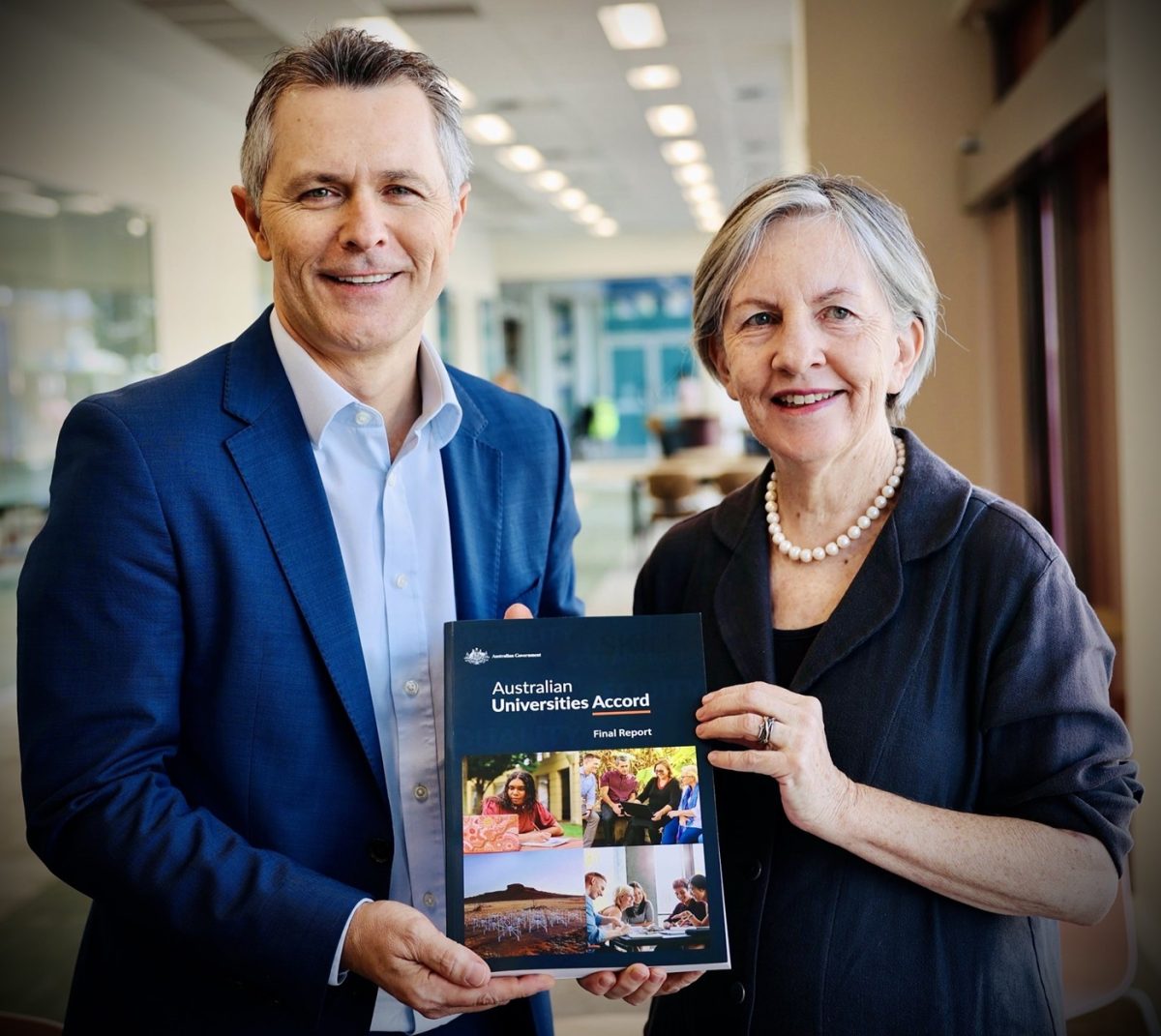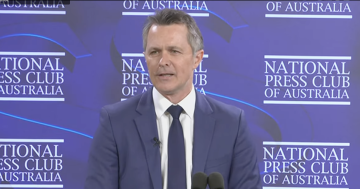
Education Minister Jason Clare and Report lead author Professor Mary O’Kane. Photo: Jason Clare Facebook.
The Australian Universities Accord Final Report has been released to cautious acclaim by educators and students alike.
The 47 recommendations in the report promise reforms to funding, the cost and availability of degrees and VET qualifications, and a possible change to the way HECS and HELP loans are calculated and repaid.
It says that at least 80 per cent of the Australian workforce will require a degree or a VET qualification by 2050 to perform the jobs that will be required then, up from the current level of 60 per cent.
But, it says, “Raising tertiary education attainment to these levels will not be easy. It can only be achieved by making the higher education system far more equitable”.
It also finds that the barriers between VET and higher education must be broken down to ensure a more seamless and integrated tertiary education system.
Education Minister Jason Clare officially launched the report – authored by a review panel chaired by Professor Mary O’Kane – at an event on Sunday. Some 820 public submissions were received, and 180 meetings with stakeholders were conducted.
The report says a clear vision for tertiary education needs to be set to underpin a strong, equitable and resilient democracy, and to drive national economic and social development and environmental sustainability.
Apart from the increased tertiary education attainment rate, the report recommends increasing the proportion of university-educated Australians aged 25 to 34 years from 45 to 55 per cent by 2050 and increasing the number of 25 to 34-year-olds with a tertiary-level vocational or technical qualification to 40 per cent by 2050.
It also recommends that the Commonwealth accelerate the supply of medical graduates in communities experiencing medical practitioner shortages and increase the number of medical graduates from under-represented backgrounds.
Importantly, it recommends that government significantly increase the availability of fee-free preparatory course places at universities. It also says the government should work with tertiary education providers, state and territory governments, industry, businesses and unions to introduce financial support for unpaid work placements in sectors such as nursing, social work, teaching and care.
For those with HECS and HELP debts, student contributions should be made fairer through simpler indexation and repayment arrangements and better reflect the lifetime benefits students will gain from studying.
Because of funding restraints, the report also proposes that implementation of the recommendations be staged, a message Minister Clare well and truly repeated during the past two days of intense media interviews.
“This is a plan not for one budget but a blueprint for the next decade and beyond,” he said.
“The Australian Universities Accord has recommended how to reform higher education over the next decade and beyond.
“Under Bob Hawke and Paul Keating, the number of Australians finishing high school jumped from around 40 per cent to almost 80 per cent,” he added. “That was nation-changing.
“The Accord says that in the years ahead, we will need 80 per cent of the workforce to not just finish high school, we will need them to finish TAFE or university as well.
“The Accord will help to drive this change. It will help us build a better and fairer education system where no one is held back or left behind.
“I sincerely thank Professor Mary O’Kane AC, the Accord Panel and everyone who has contributed to this important process.
The Independent Tertiary Education Council Australia (ITECA) described the report as comprehensive but also said it was an incomplete roadmap for a high-quality and sustainable post-secondary education sector.
“The significance of the Australian Universities Accord Final Report is in its very nature, it is institution-centric and doesn’t put students at the heart of the higher education sector,” ITECA chief executive Troy Williams said.
“The report sets out some ambitious reforms, but many students will be left behind as the policy options are not provider-agnostic.
“The report’s focus on public institutions offers little for students who want to achieve their life and career goals as a result of studying with an independent higher education provider.”
The ITECA said that given the report’s scale, the task ahead for the government is significant and that it looks forward to supporting the implementation phase.
“ITECA’s focus will be to ensure that students are at the heart of the higher education system,” Mr Williams said.
“The bold and generally positive direction set out in the report can only be achieved with policy solutions that are agnostic as to provider type and back a student’s decision to embark on higher education with either independent or public institutions.”
The full Australian Universities Accord Final Report is available here.
Original Article published by Andrew McLaughlin on Riotact.









